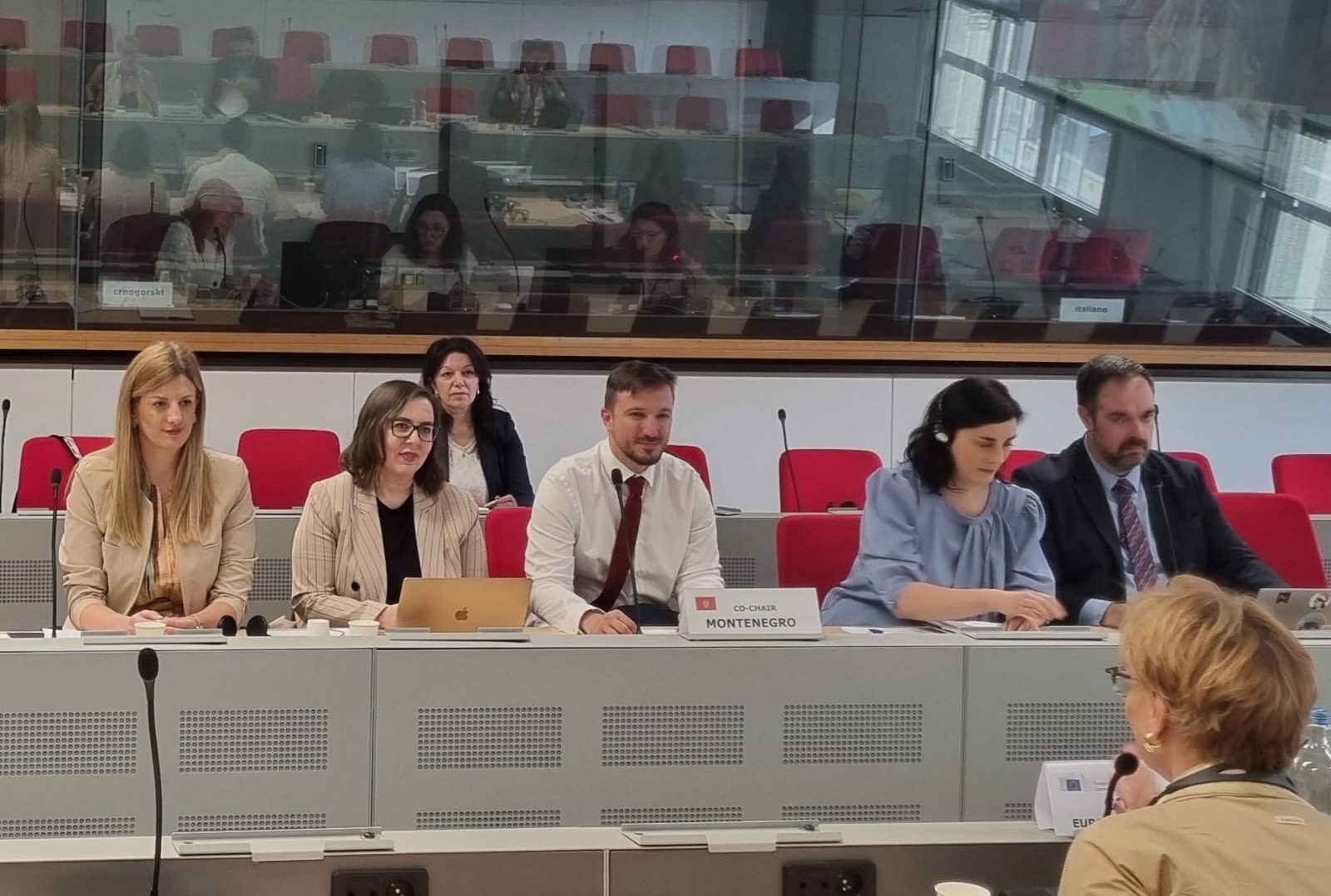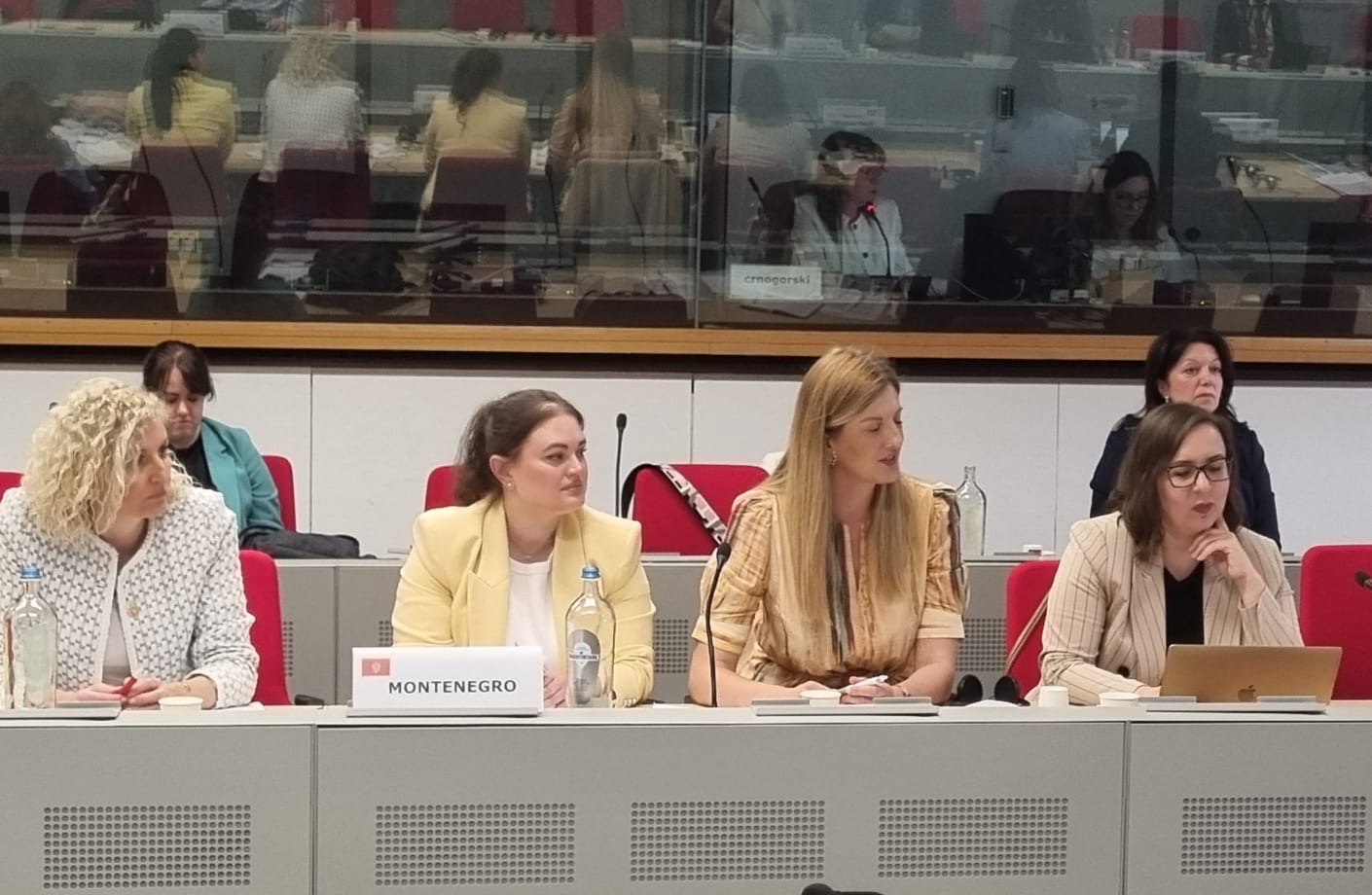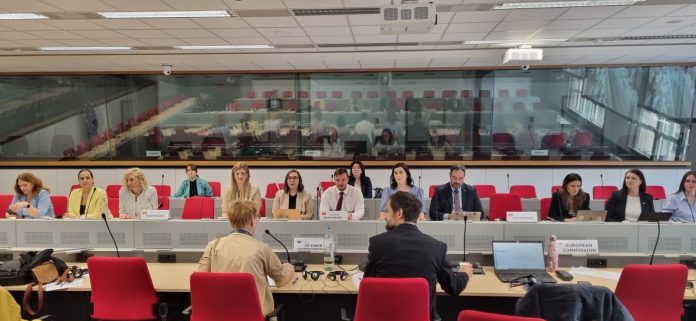Montenegro has made significant progress in Chapters 2 – Freedom of movement for workers, 10 – Information society and media, 19 – Social policy and employment, 25 – Science and research, and 26 – Education and culture, as assessed at the 16th meeting of the Subcommittee on Innovation, Human Resources, the Information Society and Social Policy held in Brussels.
Representatives of Montenegrin institutions presented to their European Commission counterparts the activities carried out in the areas covered by the aforementioned chapters.
Opening the Subcommittee meeting on the European side, Heinke Veit, Deputy Head of Unit B4 – Montenegro, Bosnia and Herzegovina from the Directorate-General for Neighbourhood and Enlargement Negotiations (DG NEAR), emphasized that Montenegro is the most advanced country in the region when it comes to the track record in the EU accession process. Montenegro has made significant progress in all chapters.
“I fully appreciate the hard work and commitment over the past period and welcome the progress Montenegro has achieved in all areas covered by this Subcommittee,” she stated. She welcomed the constructive cooperation between the Montenegrin and EU teams between the two Subcommittee meetings and encouraged the continuation of such close cooperation between the Montenegrin Government and the European Commission in order to achieve the set goals.

On the Montenegrin side, the opening remarks were delivered by Montenegro’s Ambassador to the EU, Petar Marković, who reflected on the progress achieved in Chapter 19, emphasizing that the Government is committed to alignment with EU standards through concrete reforms, particularly those that support vulnerable groups in society.
He also referred to the support from the European Commission through EU funds and the Reform Agenda. He pointed out the importance of signing financial agreements with the EU worth over 80 million euros, which will directly support environmental protection, employment, and social inclusion for the period 2024–2027.
The Montenegrin side of the meeting was chaired by Anita Bilafer Mihaljević, Head of the Department for EU Integration at the Ministry of Social Welfare, Family and Demography, and Head of the Subcommittee on Innovation, Human Resources, the Information Society and Social Policy. She emphasized that Montenegro has translated last year’s operational conclusions into concrete actions, particularly through legislative improvements, strengthened digitalization programs, and better strategic partnerships with the European Training Foundation and other EU agencies. She expressed great gratitude to the EU for its continuous financial, technical, and expert support provided to Montenegro through IPA, TAIEX, and SOCIEAUX+ missions.

“Montenegro remains fully committed to fulfilling our EU accession plan. We understand the high expectations of our citizens and the need to meet every final benchmark swiftly and credibly. Today’s Subcommittee provides an important platform for accelerating our progress and advancing toward full European integration,” concluded Bilafer Mihaljević.
MINISTRY OF EUROPEAN AFFAIRS


